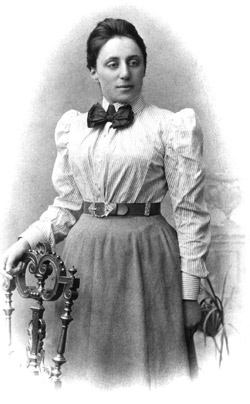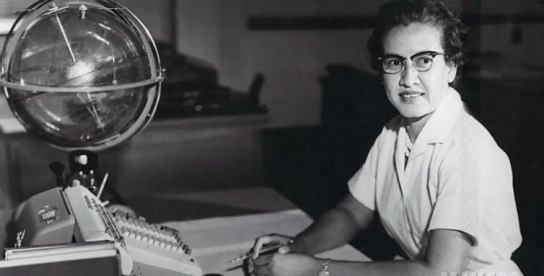 Emmy Noether
Emmy Noether
OU research student Harry Kennard places the spotlight on Emmy Noether, the female mathematician who bucked the historical trends suggesting women can't be mathematical geniuses.
Highlighting the achievements of women in mathematics
The Fields Medal is widely regarded as the most prestigious award someone can receive for mathematical work. Since it was introduced in 1936, it has been awarded to 52 people – all of whom have been men.
Of the 54 people employed as academic staff at the Department of Applied Mathematics and Theoretical Physics in Cambridge, one of the world’s most prestigious places to undertake study in mathematics, only six are women.
At every stage of tertiary education, women are opting to work in sciences such as biology and medical sciences, rather than mathematics and physics.
Historically, women have not enjoyed educational equality. Indeed, Oxford only began awarding degrees to women in the 1920s. Even today the number of women receiving degrees in mathematics is half that of men.
In turn, this lack of access has seeded a widely held, but fallacious, view that men are inherently better skilled at numerate subjects.
Despite many studies into sex difference in mathematical ability, the differences have been found to be insignificant. Moreover, studies have shown that reminding women that men are 'better' at mathematics actually causes them to underperform.
This would suggest that it is largely social factors which determine how attractive mathematics is to women; if there is a wide perception that women cannot be mathematicians then they will not become mathematicians.
In order, therefore, to promote women in mathematics, it is extremely important to highlight the achievements of those who have bucked the historical trends.
One such woman whose life and work should be championed is Emmy Noether.
The work of Emmy Noether
Noether was born in Germany in 1882. She originally planned to teach French for a living, but instead opted to study mathematics.
At the time, this was extremely unusual, but despite many institutional obstacles to her studies she achieved a doctoral degree at the age of 25 from the University of Erlangen.
The usual postdoctoral path in Germany was denied to women at this time, but she was able to continue working in mathematics by helping her father—who was also a mathematician—with his research.
She became interested in the work of the famous mathematician, David Hilbert, and in 1916, was invited to work with him in Göttingen.
She was denied the chance to lecture by the university, and had to serve instead as his assistant.
Eventually the university allowed her to take up a formal position, and she was able to build upon her now sterling reputation.
She continued to work in Germany until she was forced to move to Bryn Mawr College in the United States, following her dismissal from Gottingen by the Nazis. She remained there for the rest of her life.
In her obituary, Einstein wrote, ‘In the judgment of the most competent living mathematicians, Fräulein Noether was the most significant creative mathematical genius thus far produced since the higher education of women began’.
Had she been allowed the same privileges that men enjoyed she would certainly be a household name like Einstein.
Noether's legacy
Noether's work still receives a great deal of attention from mathematicians and physicists alike.
One of her most famous results, known simply as 'Noether's Theorem', has been widely used in many fields of theoretical physics since it was published in 1918, and forms a cornerstone of much of the physics which is probed at the Large Hadron Collider at CERN.
In its most essential form, the theory says that for each continuous symmetry of a system we can always find a conserved quantity.
This means that if, after some transformation, the system looks the same, then there must be some measurable quantity that does not change.
Conserved quantities are common in physics, the most famous of which is energy, which cannot be created or destroyed.
It is Noether's theorem that relates this conservation law to the underlying symmetry of space itself – in fact, the conservation of energy is a result of the fact that empty space 'looks the same' from one moment to the next.
Put another way, if empty space were rough or lumpy, then energy would be lost as things moved through, but the fact that space is symmetric and smooth means that energy cannot be lost.
It is because of insights like this that Noether's life and work must be celebrated.
We have a lot to thank for the perseverance and genius of this remarkable thinker. It is through publicising her work, and the superb work of women in mathematics today that we can hope to debunk the myth that mathematics is solely the pursuit of men.


Rate and Review
Rate this article
Review this article
Log into OpenLearn to leave reviews and join in the conversation.
Article reviews
Luca Lotto - 11 May 2012 8:04pm
unfortunately, david hilbert wasn't an english man. He was german, and one of the few scientists who openly spoke out against the nazis and was not silenced by them, may be because of his age and his character that lead him into an inner retreat than an open fight against them. Anyway no english...
Harry Kennard - 15 May 2012 1:44pm
Thanks for that Luca, mistake on my part, corrected now.